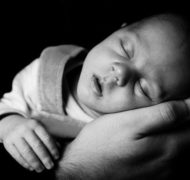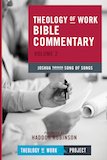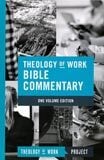God Works Through the Fruitfulness of Childbearing (Ruth 4:13-18)
Bible Commentary / Produced by TOW Project
In Ruth 4:13, we encounter only the second instance in the book (in addition to Ruth 1:6) where an event is expressly attributed to the hand of God. “When they [meaning Ruth and Boaz] came together, the Lord made her conceive, and she bore a son.” While the Hebrew term for conception/pregnancy (herayon) occurs elsewhere only in Genesis 3:16 and Hosea 9:11, the particular idiom “to grant/give conception,” occurs only here. We should interpret this statement against the backdrop of Ruth’s apparently ten-year, childless marriage with Mahlon (Ruth 1:4). After Ruth’s faithfulness in coming to Israel with Naomi, after Boaz’ faithfulness in providing for Ruth to glean his fields, and his faithfulness in serving as her kinsman-redeemer, after the faithful prayer of the witnesses in the gate (Ruth 1:11–12), and apparently as soon as Ruth and Boaz consummated the marriage, God conceived in Ruth a child. All human effort, even sexual intercourse, depends on God for the achievement of intended or desired goals (Ruth 4:13–15; cf. 1:4).
Could Family Be Part of a Calling? (Click to Watch) |
The birth of any child is a gift from God, but there was a bigger story in the birth of Ruth and Boaz’ son, Obed. He would become the grandfather of David, Israel’s greatest king (Ruth 4:22), and ultimately the ancestor of Jesus the Messiah (Matthew 1:5, 16–17). In this way the foreigner Ruth became a blessing to Israel and to everyone who follows Jesus to this day.







